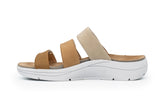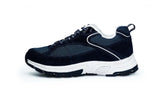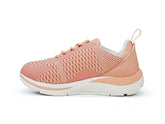The Evolution of Style and Comfort: A Look at Modern Orthopedic Shoes
Orthopedic shoes have long been associated with functionality over fashion, but recent advancements have transformed them into stylish, comfortable footwear options. These shoes are designed to address a range of foot ailments while offering a modern aesthetic appeal.
Understanding Orthopedic Shoes
Orthopedic shoes are specially designed to support the unique needs of feet, ankles, and legs. They prioritize comfort and support, going beyond traditional shoe designs to provide relief for foot-related problems.
From Functional to Fashionable
Historically, orthopedic shoes focused primarily on function, often lacking in style. However, contemporary designs now blend ergonomic features with modern fashion trends. This shift allows individuals to prioritize both comfort and style in their footwear choices.
Features of Orthopedic Shoes
Orthopedic shoes stand out due to their specialized features, including:
- Enhanced arch support
- Roomy toe box
- Cushioned soles
- Customizable fit
- Breathable fabrics
- Durable construction
- Non-slip soles
These features ensure maximum comfort and support, addressing various foot issues while maintaining a fashionable appearance.
Who Needs Orthopedic Shoes?
Orthopedic shoes cater to a broad audience, including:
- Individuals with foot conditions like plantar fasciitis, bunions, or diabetic neuropathy.
- Those experiencing age-related changes in their feet.
- Athletes or active individuals seeking support during physical activities.
- Anyone looking for superior comfort and support in their everyday footwear.
Types of Orthopedic Shoes
Orthopedic shoes come in various styles, including:
- Sneakers
- Dress shoes
- Sandals
- Kiziks
- Custom orthopedic shoes
- Over-the-counter options
These options cater to different needs and preferences, ensuring there's a suitable orthopedic shoe for everyone.
Benefits of Orthopedic Shoes
Orthopedic shoes offer several health benefits, including:
- Relief from discomfort associated with foot conditions.
- Improved posture and alignment.
- Prevention of injuries and falls.
- Healthy mobility and active lifestyle support.
- Emotional benefits, such as increased confidence.
Choosing the Right Orthopedic Shoes
To select the right orthopedic shoes, consider factors such as foot shape, lifestyle, and professional advice from a podiatrist. Prioritize comfort, fit, and key orthopedic features to ensure the shoes meet your specific needs.








